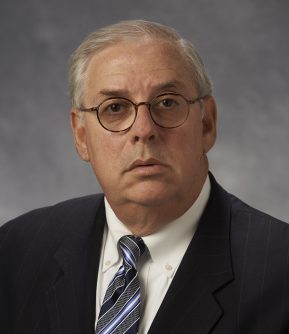ATM Patent Holder Launches Campaign Against Community Banks
During the last few weeks, several of our banking and financial institution clients have received letters from attorneys for Automated Transactions LLC (“ATL”) alleging that our clients are infringing patents held by ATL through their use of automatic teller machines (“ATMs”) that are connected via the Internet, Intranets and Network Services to provide a variety of banking services to their customers. The letters threaten legal action against the financial institutions unless they purchase a license to the asserted patents from ATL. We write to you to provide information that may be helpful in the event that you receive such a letter or are asked to respond to questions regarding the impact of ATL’s claims on your operations.
At present, ATL claims ownership of 13 U.S. Patents (the “ATM Patents”) related to the operation of ATMs over the Internet. The earliest such patent (U.S. Pat. No. 6,945,457 B1) was issued on September 20, 2005, arising from a provisional patent application filed on May 10, 1996 by David M. Barcelou and a full (PCT) application filed on May 9, 1997. All of the ATM Patents will expire not later than May 10, 2016. By virtue of the ATM Patents, ATL claims the exclusive right to use of an Internet interface to conduct financial transactions using ATMs over the Internet.
In 2006 and at the request of NCR Corporation, the U.S. Patent and Trademark Office re-examined the patent claims in the original patent and invalidated a number of those claims on the ground that the claimed inventions were “obvious” and, therefore, not patentable.
ATL has brought over a dozen lawsuits for infringement of the ATM Patents. While most are still at the trial level, the earliest case (Automated Transactions LLC v. IYG Holdings Co. in the U.S. District Court for the District of Delaware) resulted in a loss for ATL at the trial level. The District Court ruled that ATMs that operated over virtual private networks did not infringe the ATM Patents asserted in the lawsuit. On April 23, 2012, the U.S. Court of Appeals for the Third Circuit upheld the ruling of the District Court, as well as the decision of the Patent and Trademark Office upon re-examination.
The decision in the IYG Holdings case does not address a number of issues: Do any of the later-filed ATM Patents suggest a different result? If the ATMs use the Internet rather than a VPN do they infringe? Further, will ATL seek to overturn the decision of the Third Circuit in the U.S. Supreme Court and, if they do, will the Supreme Court hear the case?
Notwithstanding its recent losses at the Patent and Trademark Office and in the Courts, ATL has continued to press banks and financial institutions – particularly smaller banks and financial institutions – for “settlements.” By threating lawsuits (with the attendant risks and expenses), ATL hopes the banks and institutions will opt to settle in order to avoid litigation even if the banks and institutions believe they will ultimately prevail. ATL is offering various settlement “options” which include paid-up licenses and licenses tied to per-transaction fees.
If you receive a letter from ATL or its counsel, here are a few things to remember:
- The validity of the ATM Patents is still in question.
- Even if you choose not to settle, ATL may opt not to institute suit. (It has threatened far more suits than it has brought.)
- You may have contractual or common law indemnification rights against the manufacturers of your ATMs.
- Banks and financial institutions that choose to settle can often negotiate settlements by agreeing to pay modest license or transaction fees.
Regardless of the course that you choose to take, we do not recommend that you ignore a threat from ATL. Once you choose your course, you should advise ATL of your decision and, if appropriate, put the manufacturer of your ATMs on notice of your demand for indemnification. Of course, if a lawsuit is filed, you should timely respond to it.
If you have any questions about this important issue, please contact Elliott J. Stein at 609.987.7050 or the Stevens & Lee attorney with whom you regularly speak.
This News Alert has been prepared for informational purposes only and should not be construed as, and does not constitute, legal advice on any specific matter. For more information, please see the disclaimer.

